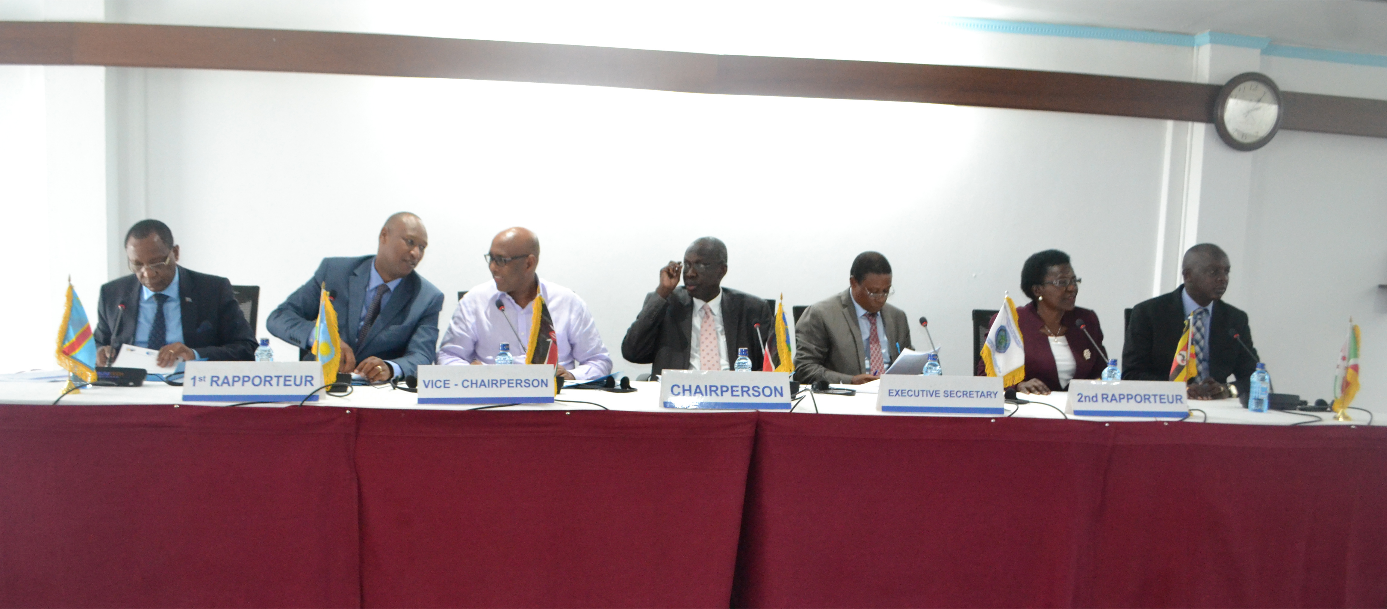Mombasa, 03 August 2018: On behalf of Ministry of Infrastructure, the Permanent Secretary, Christian Rwakunda participated in the Northern Corridor Policy Organs meeting that took place in Mombasa, Kenya on 03 August 2018. The Northern Corridor Policy Organs commended the current trade facilitation and integration initiatives and urged all Member States to commit to the implementation of Single Customs Territory and work towards implementing the African Continental Free Trade Area (African CFTA).
During the 30th meeting of Council of Ministers and the 45th Executive Committee meeting of the Northern Corridor Transit and Transport Coordination Authority (NCTTCA) held from 30 July to 3rd August 2017, at Sarova Whitesands Beach Resort in Mombasa, Kenya; under the theme: “Harmonizing Trade and Transport Policies for a Competitive Corridor”, the NCTTCA Policy Organs emphasised the importance of the Northern Corridor Transport route and the role it plays in promoting international trade and regional integration.
Ministers and Permanent Secretaries members of the NCTTCA Policy Organs meetings also lauded the efforts and the progress made by Member States in developing and improving regional transport infrastructure projects such as One Stop Border Posts, the Standard Gauge Railway and the Oil pipeline.
They commended the Democratic Republic of Congo’s political will to join the Northern Corridor Integration Projects Initiative championed by the Heads of States and its commitment to promote the Standard Gauge Railway as part of its transport infrastructure programs.
Northern Corridor Policy Organs members re-affirmed the commitment of their respective countries towards integrating the Road Side Stations Program in Transport Infrastructure Development along the Northern Corridor highways and further directed the Northern Corridor Secretariat to Promote Road Safety along the Northern Corridor Region in collaboration with Member States and Safe Way Right Way, a non-governmental organization based in Kenya.
They further directed the NCTTCA Secretariat to expeditiously roll out the Road Side Stations program and set up National Multi-Sectoral Task Forces in collaboration with all the Member States and tasked the Secretariat to fast track the signing of the Bilateral Agreement on One Stop Border Posts (OSBP) and its implementation Road Map.
ABOUT THE NORTHERN CORRIDOR TRANSIT AND TRANSPORT AGREEMENT
The Northern Corridor Transit Agreement (NCTA) signed in Bujumbura, Burundi, on February 19, 1985, by the Republics of Burundi, Kenya, Rwanda and Uganda covered the use of transportation facilities of East Africa linking the countries to the Port of Mombasa, in Kenya. The signatories ratified the Agreement in 1985 and 1986, and Zaire (now Democratic Republic of Congo) acceded to it on May 8, 1987, in Kigali.
The revised Northern Corridor Transit and Transport Agreement (NCTTA), was signed in Nairobi, Kenya, on 06 October 2007, between the Governments of Burundi, Democratic Republic of Congo, Kenya, Rwanda, and Uganda. It entered into force on 06 December 2012. The Republic of South Sudan acceded to the Agreement as the sixth Member State on 07 March 2013.
The new Agreement now extends the mandate and scope of the 1985 Agreement. It renews the protocols and develops new ones in areas where none existed. It has 11 Protocols whereas the 1985 NCTA had only nine.
The Contracting parties at the time of reviewing and adopting of the October 2007 Agreement agreed on the protocols related to Maritime Port Facilities, Routes and Facilities, Customs control, Documentation and Procedures, Transport of Goods by Rail, Transport of Goods by Road, Inland Waterways Transport, Transport by Pipeline, multimodal Transport of Goods, Handling of dangerous Goods and Measures of facilitation for Transit Agencies, trade and Employees.
The 2007 Agreement is certainly considered an improved version of the 1985 Agreement because it has instituted modern transport modes such as multimodal transport.
The 2007 Northern Corridor Agreement also refers to close coordination between Governments and the private sector as a key factor in the development of trade and transit facilitation. It acknowledges the importance of developing the Northern Corridor as a transit and transport system that is economical, safe, and environmentally sustainable. In light of this, the NCTTCA monitor the performance of the corridor on weekly, monthly and annual basis.

 ENGL
ENGL KINY
KINY